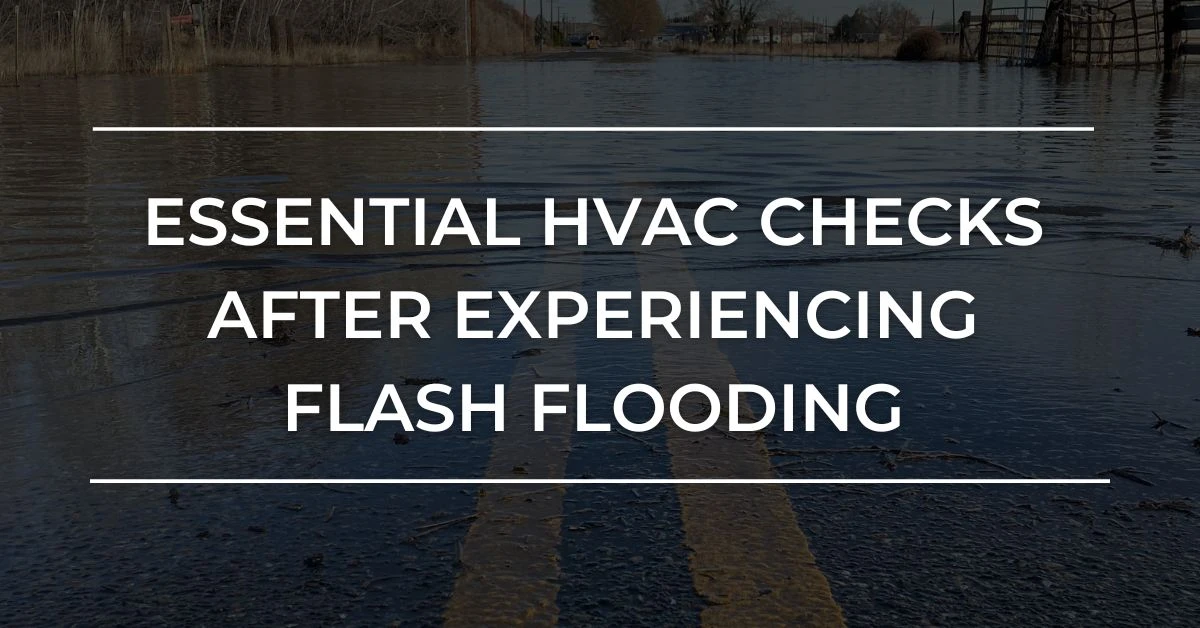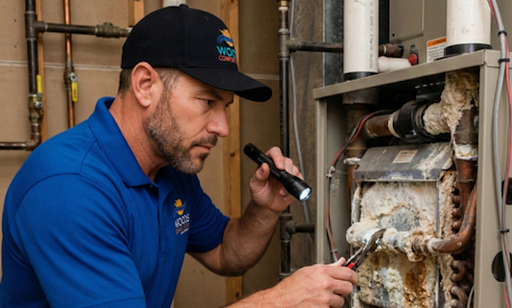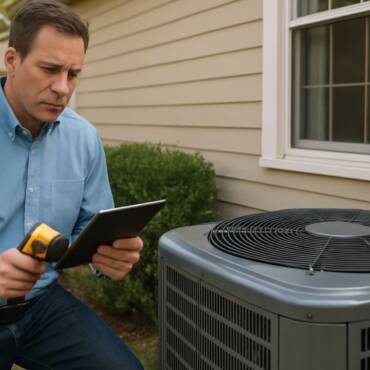In southeastern North Carolina, flash flooding can occur unexpectedly, impacting the functionality and safety of your HVAC system. After facing flash flooding, it’s essential to perform these checks:
- Turn Off the System: Immediately turn off your HVAC system at the thermostat and circuit breaker. This prevents electrical hazards and potential damage from water exposure.
- Check for Water Damage: Inspect both the indoor and outdoor units. In this region, flooding can quickly overwhelm outdoor units, causing damage to electrical components and the compressor. Look for signs of water infiltration and corrosion.
- Remove Debris: Floodwaters in coastal areas often bring debris, including sand and plant material. Clear any debris around the outdoor unit to ensure proper airflow and prevent future damage.
- Inspect Electrical Components: Humid conditions in southeastern NC can exacerbate water damage to electrical connections. Carefully check the wiring and control panels for any signs of moisture or corrosion, and seek professional help if needed.
- Assess the Ductwork: High humidity and flooding can cause moisture to enter the ductwork, promoting unwanted issues. Initially check to see if there is any standing water but it’s best practice to have ducts professionally inspected.
- Replace the Air Filter: Due to high moisture levels, contaminants can quickly accumulate in the air filter. Replace it immediately to maintain good indoor air quality.
- Listen and Smell for Issues: When you restart the system, listen for unusual noises and be alert for musty odors, which could indicate electrical problems or mold due to the humid coastal climate.
- Test the Thermostat: Flash floods can cause power surges, potentially damaging your thermostat. Ensure it’s operating correctly.
- Monitor System Performance: In the aftermath of a flood, your HVAC system may struggle with the high humidity typical of southeastern NC. Watch for uneven cooling, reduced airflow, or frequent cycling. If you notice any issues, Carolina Comfort Air can help identify and resolve the problem promptly.
- Call Carolina Comfort Air: Your local HVAC experts are here to help. Our licensed technicians can assess your system for any hidden damage caused by flooding, ensuring it operates safely and efficiently. With our extensive experience in southeastern NC, we know how to handle the unique challenges of the region’s weather to keep your home comfortable year-round.
If your HVAC system has been exposed to flooding, it’s crucial to act quickly to prevent further damage and ensure your home’s safety. At Carolina Comfort Air, our team of experienced professionals understands the unique challenges of the southeastern NC climate. We’re here to provide a thorough inspection and necessary repairs, ensuring your system is safe, efficient, and ready to handle the region’s weather conditions.
Whether you require installation, repair, or maintenance, our technicians will assist you with top-quality service at any time of the day or night. Take comfort in knowing your indoor air quality is the best it can be with MOE heating & cooling services Ontario's solution for heating, air conditioning, and ventilation that’s cooler than the rest.
Contact us to schedule a visit. Our qualified team of technicians, are always ready to help you and guide you for heating and cooling issues. Weather you want to replace an old furnace or install a brand new air conditioner, we are here to help you. Our main office is at Kitchener but we can service most of Ontario's cities
Source link




Add Comment